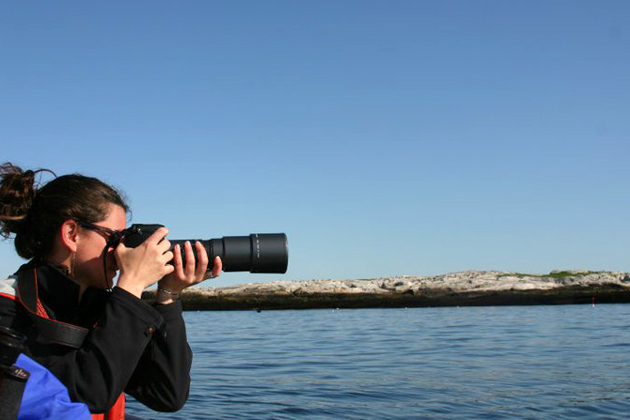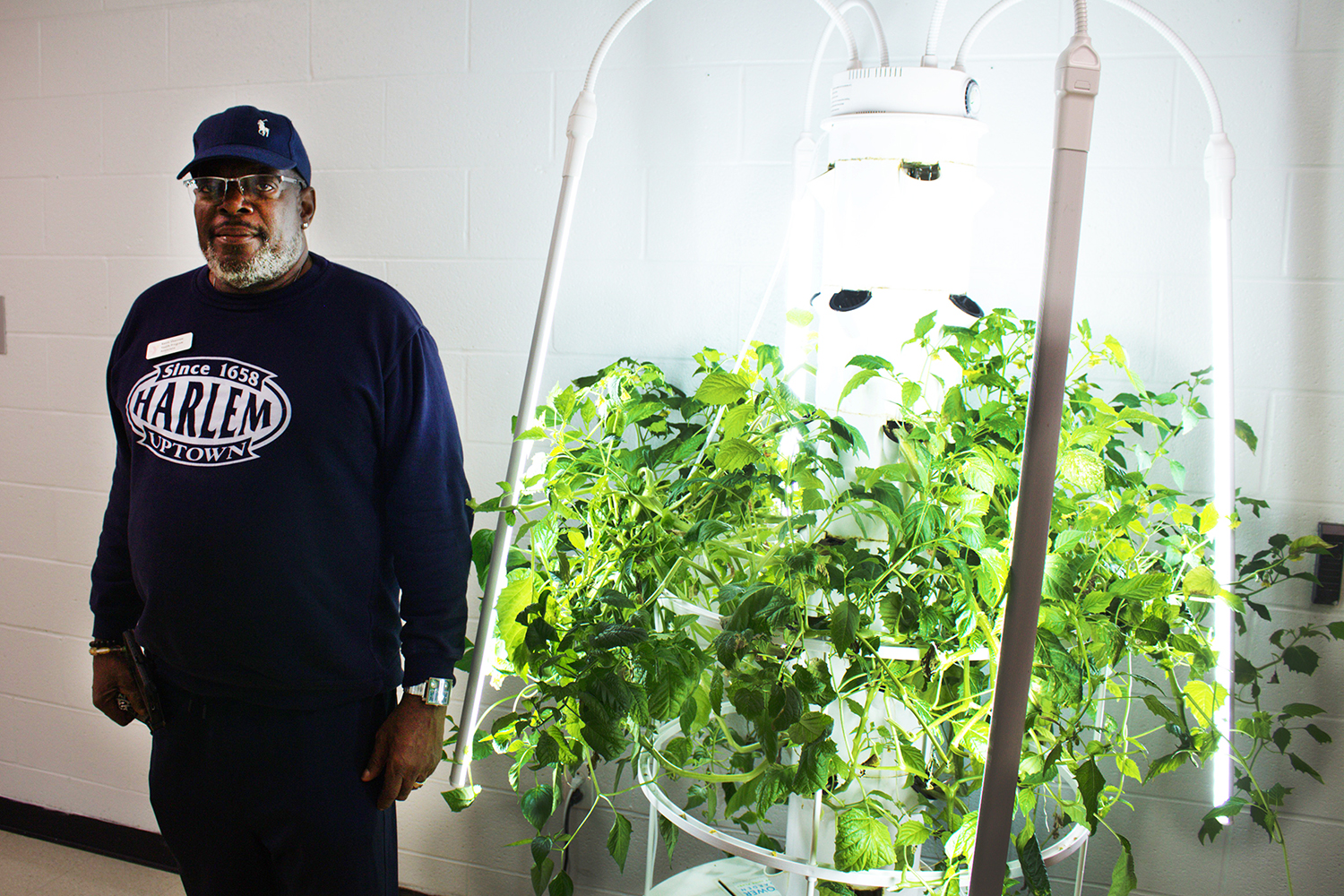
Pathobiology and veterinary science doctoral student Andrea Bogomolni is the epitome of a busy graduate student. With a penchant for, in her words, “just making things happen,” this native Californian has learned to juggle academic, professional, and personal interests in a way that not only rewards her quest for knowledge through the pursuit of challenging long-term research objectives, but that also makes a difference in the lives of others.
An interest in marine sciences that developed while she was a child led her to pursue a BS in wildlife fisheries and conservation biology at the University of California-Davis. But because she also had an interest in biological illustration, she stayed on an extra year to complete a BA in studio art.

She enrolled at Boston University in search of a one year master’s degree in marine science, but once on the east coast – and despite her mother’s admonition that the Pacific is a perfectly good ocean to study – she switched to a three-year research master’s and began working with the Cape Cod Stranding Network (now the International Fund for Animal Welfare/Marine Mammal Rescue).
She became the necropsy coordinator with the stranding organization and later began working as a research associate at the Wood’s Hole Oceanographic Institution focusing on zoonotic diseases in marine vertebrates. That’s when she first began working with UConn associate professor of pathology Salvatore Frasca and associate professor and director of the Connecticut Sea Grant College Program Sylvain DeGuise. It was their encouragement that led her to consider UConn’s pathobiology Ph.D. program in the Collete of Agriculture and Natural Resources, with a concentration in marine science.

With initial funding from the Interdisciplinary Research & Training Initiative on Coastal Ecosystems & Human Health, Bogomolni came to UConn and began studying marine mammals.
“The marine mammal side of things wasn’t necessarily where I thought I’d end up”, she says, “but they’re such great sentinels. They’re such great communicators of what’s happening in our marine environment. People really begin to listen when you start talking about seals and dolphins rather than microscopic organisms such as algae. They’re animals the average person can relate to.”

Her work at Woods Hole led to her involvement with the Eastern Caribbean Cetacean Network a regional volunteer network that records sightings and strandings of marine mammals in the eastern Caribbean. Bogomolni and the network’s founder and director, marine biologist Nathalie Ward, work with individuals based on about a dozen eastern Caribbean islands, including Guadeloupe, Barbados, St. Lucia, and Trinidad and Tobago, to gain community support for the protection of resident and migratory whales and dolphins and their marine habitat through research and education.
When Bogomolni was named a Robert & Patricia Switzer Foundation fellow in August, those who know her weren’t really surprised.

The highly-selective Switzer fellowships are awarded to graduate students who are pursuing degrees that will lead to positive environmental change. In announcing the names of this year’s 20 fellowship winners, board chair Jen Sokolove said, “The heart of the Switzer Foundation is about supporting environmental leaders who are able to think across traditional disciplinary boundaries and shape the future of environmental science, policy, and study.”
Bogomolni’s has combined the study of public health, marine sciences, and pathology in her degree program. “I guess I’m passionate about a lot of things,” she says.
And her ‘can do’ attitude has again led her in a direction she did not anticipate. With an increasing population of gray and harbor seals around Cape Cod, there is an inevitable clash between fisheries and those interested in pinniped conservation.
When the Cape Cod Commercial Hook Fishermen’s Association contacted her to see if there was a means of constructively addressing different agendas, Bogomolni jumped into the fray. She obtained funding through Woods Hole and helped organize a conference dealing with the issues of disease and health, population dynamics and behavior, and human interactions. The conference, held last year, attracted fishermen, students, and researchers, as well as NGO and government representatives, from both Canada and the U.S. It was so successful that another conference is in the works focusing on fishery interactions and integrated research.

As to what she will do once she has completed her Ph.D., Bogomolni isn’t sure yet. “I just know it will be something involving an understanding of human and animal disease transmission and marine health,” she says. “I also want to bring science to the public so that everyone can understand and relate to both the problems and opportunities that exist in our environment.”



